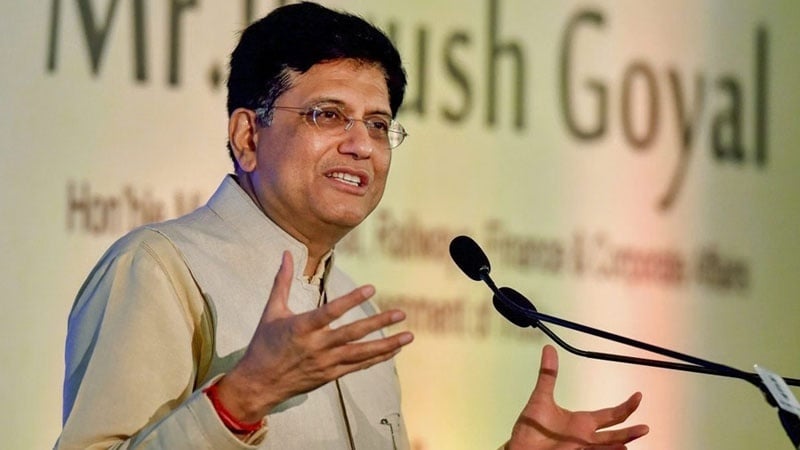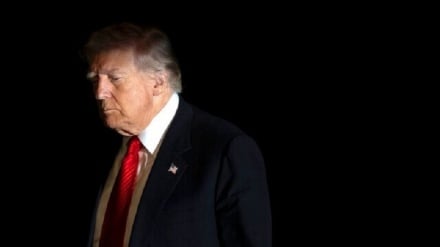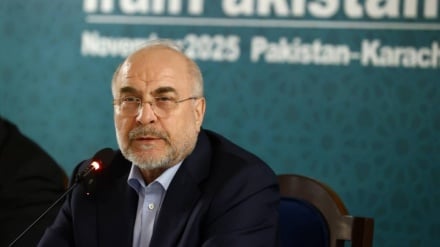Why has India emphasized that it will not bow to the U.S.?
-

Piyush Goyal, India’s Commerce Minister
Pars Today – India announced that the country “will not bow in deference” to the United States and, instead, will focus on tapping into new markets.
Piyush Goyal, India’s Commerce Minister, said at a construction industry event in New Delhi: “If anyone wishes, India is always ready to have a free trade agreement with them. India will neither surrender nor ever appear weak. We will secure new markets.”
According to Pars Today, these remarks came as the U.S. government, under the directive of its president, implemented an approximate 50% tariff on all imports from India starting Wednesday, August 27. Half of this tariff has been announced as a “punishment” for India’s purchase of Russian oil.
The full implementation of the new tariffs against India signifies the use of trade policy as a tool for objectives beyond the trade balance, including exerting pressure on countries that engage in energy transactions with Russia. By imposing a 50% tariff on imports from India, Washington has taken one of its harshest tariff measures against a country with extensive economic ties to the United States.
This trade crisis has undermined years of growing cooperation between Delhi and Washington—which was based on technology and containing China’s global influence—and has forced India to consider diversifying its trade relations for economic security. The increased tariffs on India could weaken the multi-year strategy of American importers to shift production from China to India.
Since returning to the White House this year, U.S. President Donald Trump has used tariffs as a broad political tool, disrupting global trade. For years, the U.S. president has referred to India as the “king of tariffs” and accused Delhi of protecting its domestic market through tariffs and strict standards—issues that previously affected exports of certain American goods, such as motorcycles and golf equipment. This year, trade negotiations between the two countries progressed slowly, with support for Indian farmers remaining a sensitive issue.
Delhi’s efforts to win Washington’s favor through increased purchases of U.S. energy and defense equipment—including a 70% rise in energy imports from the U.S. in the first half of 2025, reaching $6.6 billion—were unable to prevent Trump’s tariff decision.
Thus, the latest wave of tariffs imposed by Trump has strained U.S.-India relations, as Delhi considers these tariffs unfair, unjustified, and unreasonable. In this context, Donald Trump canceled his planned trip to the upcoming Quad (Quadrilateral Security Dialogue) meeting, which was to be held in India, due to the deterioration of relations between Washington and Delhi—another indication of the level of tension between the two countries.
At the same time, affected by Washington’s tariff pressure—which has particularly targeted India’s purchase of Russian oil—Delhi and Beijing showed signs of repairing their relations last week. Border negotiations and bilateral meetings took place, including a meeting between Indian Prime Minister Narendra Modi and Chinese President Xi Jinping on the sidelines of the Shanghai Cooperation Organization summit. The two leaders agreed on resolving border disputes and restoring normal trade relations.
Moreover, the resumption of direct flights between India and China will have wide-ranging effects on the economies and trade of both countries. Facilitating the movement of traders, investors, and tourists can boost bilateral trade, increase joint investments, and expand economic cooperation. The warming of relations between Beijing and Delhi can be seen as a strategic response to U.S. pressures.
Michael Kugelman, a South Asia expert, believes: “India’s trust in the U.S. has collapsed, and American officials are still unaware of the extent of the damage they have caused.”
In this context, China has gained a unique position by hosting the two-day Shanghai Cooperation Organization summit. According to Kugelman, Modi is traveling to Beijing at a time when China-India relations are improving, while India-U.S. ties are on a downward slope. This contrast will create a symbolic and powerful image.


